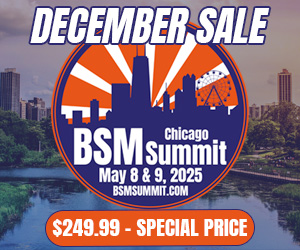“The only person who tunes into the game to hear the broadcaster is his mother,” proclaimed immortal sports broadcaster, Marty Glickman.
Think about it. Have you ever tuned in to a sporting event to hear the broadcaster? Of course not. You flip on the television, radio or device for one reason – to watch the game.
If only Glickman was moderating this year’s first presidential debate.
The great Marty Glickman was a pioneering voice of sports play-by-play, beginning his career in 1940. He practically invented the art form and quite literally became the standard. The basketball term “swish,” when a player makes a basket without hitting the rim, was a Marty Glickman creation. He also invented much of the basketball court geography we still use today – such as “elbow”, “key”, etc. And aside from his broadcasting accolades, Glickman later went on to become the world’s preeminent sportscasting coach. His generosity and impact on the world of sports broadcasting were equally immeasurable.
But the thing that made Marty Glickman the world’s top play by play broadcaster, even more so than those technical inventions, was his philosophy. He had a simple mindset to which he believed every play by play broadcaster should adhere when calling the action of a live event.
The underlying premise behind everything Glickman taught was simply this – people tune in for the game. Whether in sports or news, viewers tune in for the event. It is never about the broadcaster.
The sports radio play by play broadcaster’s job is to describe the action, or “paint the word picture,” so the listener can see the action in his or her mind. On television, the broadcaster should complement the action the viewer can already see. But in either case, the game is the one and only focus. The broadcaster is simply the conduit to bring the listener into the action.
Before last week’s presidential debate, the debate’s moderator, Fox News host Chris Wallace, said his goal was to become invisible. He said he wanted viewers to forget he was even there. Indeed, Wallace was channeling his inner Glickman, as if he had just spent a critique session with the Dean of radio play by play. In voicing this pre-debate strategy in the lead-up to the highly-anticipated event, Wallace gave the country a tremendous amount of hope. As a professional, we expected him to deliver on the promise and give us, the viewers, what we wanted. Specifically, we expected a clear, unfiltered view of the two verbal combatants.
It only took minutes before our hopes were dashed.
From his first interruption of the president, Wallace was continually in the middle of the action. Rather than a mono-on-mono between President Trump and Joe Biden, viewers were bombarded with what often became a two-on-one. Regardless of the fact that he seemed intent to join Biden in trapping Trump, he should not have been in the scrum to begin with. Not one of the millions of viewers tuned in to hear Chris Wallace!
So how, then, could the moderator have done what he obviously felt was his duty, to maintain order and control? Perhaps early in the debate, when the two men were interrupting and speaking over one another, Wallace could have said, “Gentleman, you are obviously disregarding the debate rules and jumping in when it is your opponent’s turn. But my role is not to play kindergarten cop. If you two want to continue with these tactics, I’m going to be here and our viewers can make their own judgements.” In that way, Wallace could have re-stated the ground rules, to viewers and the participants, while not becoming the story. In other words, he would have trusted viewers to make up their own minds.
But far too often, that is not how elite news journalists see their role. Many of them, in fact, have very little confidence in the American public to make up its own mind, without the journalist setting the premise. Their inherent belief is that they, as the smartest folks among many, need to explain what we should think. Whether during debates or otherwise, many journalists just can’t miss an opportunity to tell us what to think or how to view an argument.
Much has been written about the content of the questions, and why Wallace seemed to pick sides early in the debate. Why did he ask the president a pointed question about white supremacy, when just four years ago he asked the same question and received an unambiguous answer from then-candidate Trump. Those angles of Wallace’s performance have been covered extensively elsewhere over the past week.
Our focus here is simply directed at Wallace’s philosophy of handling the debate, both in his pre-event resolution and then in the actual outcome.
Why did we tune into the debate in the first place?
To hear Trump and Biden, or to hear Chris Wallace?
His plan was the right one. It was Marty Glickman.
On execution, however, he became part of the story and the resulting aftermath.
Here’s hoping that viewers get the contrary approach they deserve next time.

Rick Schultz is a former Sports Director for WFUV Radio at Fordham University. He has coached and mentored hundreds of Sports Broadcasting students at the Connecticut School of Broadcasting, Marist College and privately. His media career experiences include working for the Hudson Valley Renegades, Army Sports at West Point, The Norwich Navigators, 1340/1390 ESPN Radio in Poughkeepsie, NY, Time Warner Cable TV, Scorephone NY, Metro Networks, NBC Sports, ABC Sports, Cumulus Media, Pamal Broadcasting and WATR. He has also authored a number of books including “A Renegade Championship Summer” and “Untold Tales From The Bush Leagues”. To get in touch, find him on Twitter @RickSchultzNY.





